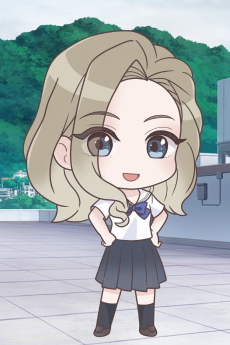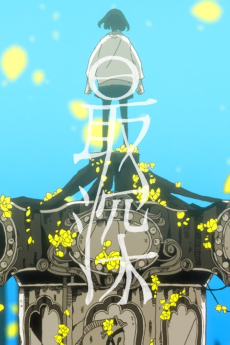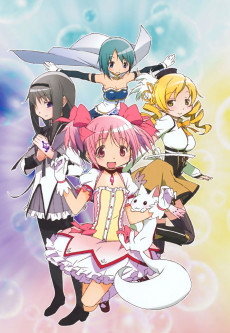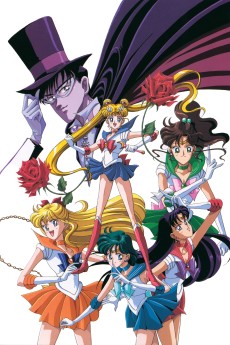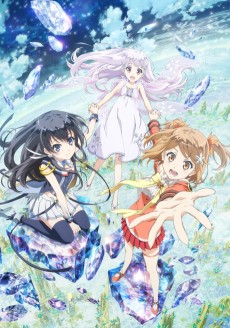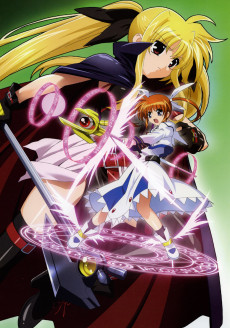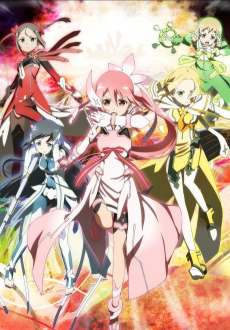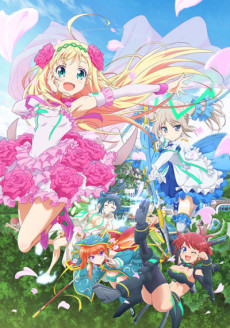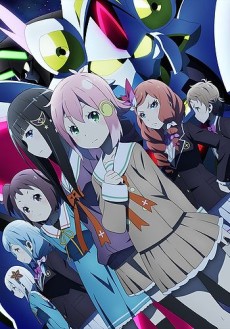BLUE REFLECTION RAY
STATUS
COMPLETE
EPISODES
24
RELEASE
September 25, 2021
LENGTH
25 min
DESCRIPTION
Optimistic Hiori can’t turn away anyone in need. Awkward Ruka can’t seem to make friends, even when she tries. But these two do have one thing in common: they’re both magical girls called Reflectors! Together, this unlikely pair will use their powers to help resolve emotional struggles and protect the Fragments of people’s hearts.
(Source: Funimation)
CAST
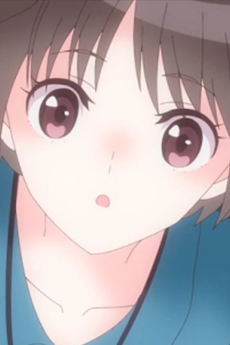
Hiori Hirahara
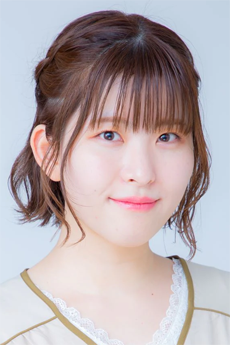
Manaka Iwami
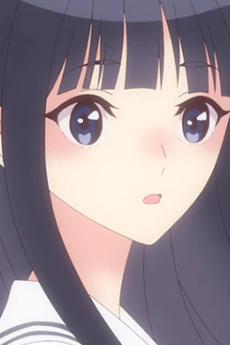
Ruka Hanari
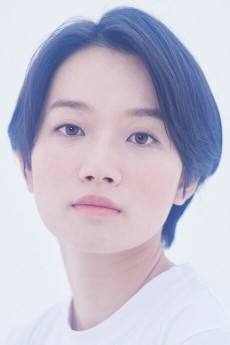
Haruka Chisuga
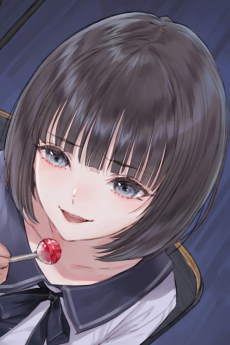
Uta Komagawa
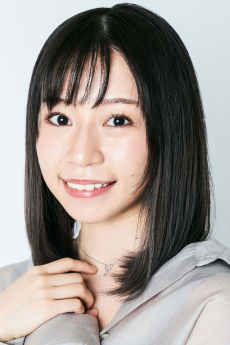
Rui Tanabe
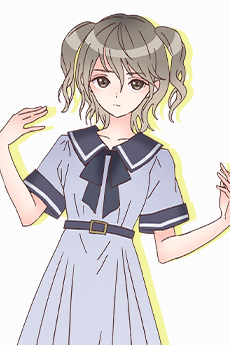
Nina Yamada
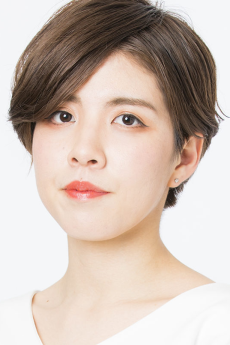
Nina Tamaki
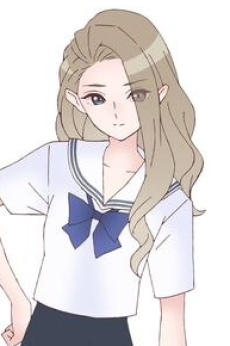
Momo Tanabe
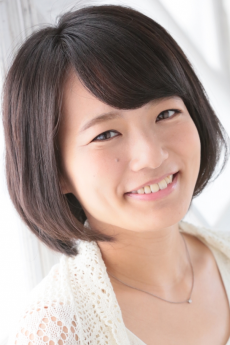
Yuka Takakura

Miyako Shirakaba
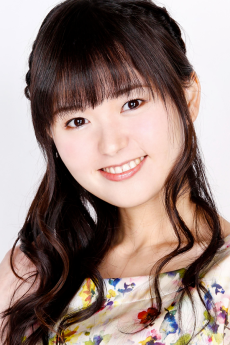
Hitomi Oowada
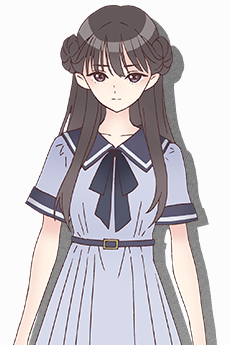
Mio Hirahara
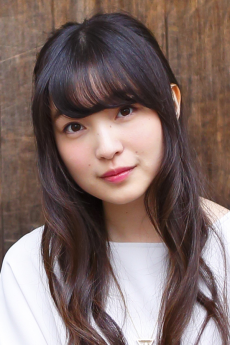
Reina Ueda
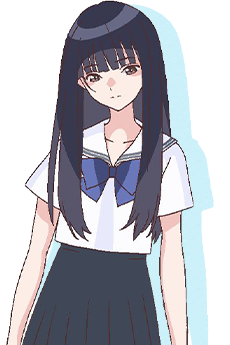
Yuri Saiki

Ayane Sakura
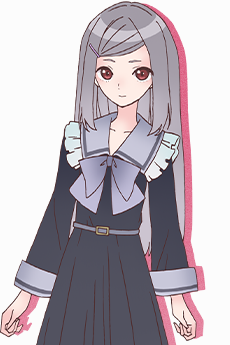
Shino Mizusaki
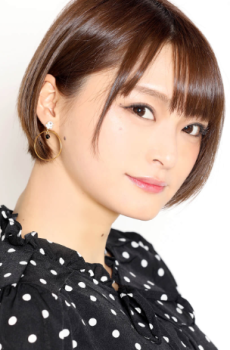
Shiori Izawa
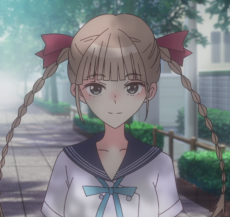
Yuzuki Shijou
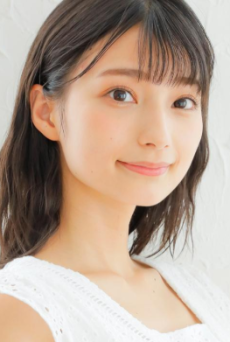
Marika Kouno
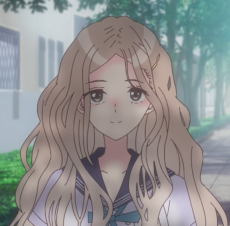
Raimu Shijou
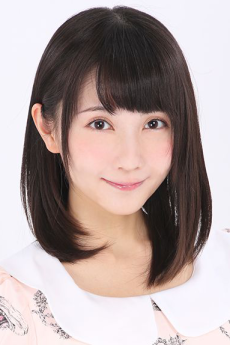
Sawako Hata
EPISODES
Dubbed
RELATED TO BLUE REFLECTION RAY
REVIEWS

planetJane
73/100The morning sun rises over a field of lilies. This, in essence, is Blue Reflection Ray.Continue on AniList
All of my reviews contain __spoilers __for the reviewed material. This is your only warning.
She said
“I feel like I’ve come untethered,
in a room without walls.
I’m drifting on a dark and empty sea of nothing.
It doesn’t feel bad, it feels like nothin’ at all.”
Let’s not mince words, as far as gaining its own fanbase or leaving a cultural impact of basically any kind, Blue Reflection Ray never had a chance, at least not over here in the West. Not only was it easy to write off by anyone so inclined due to its floaty animation, sprawling story, Shoujo-inspired art style, and links to an already-obscure parent series (the larger Blue Reflection franchise), it was also sandwiched between two other magical girl anime tackling some similar subject matter in a more succinct and accessible way; Wonder Egg Priority and the second season of Magia Record respectively. Nonetheless, it’s 24 weeks later and I find myself still with a real soft spot for BRR, in spite of everything. Maybe it’s because more than almost any other magical girl series I’ve ever seen, the enemy as personified in Blue Reflection Ray is not something simple. Instead, its real antagonist is sheer emotional burnout, the very death of feeling itself. Late in the series when main villain Shino infiltrates The Common, humanity’s collective unconsciousness, she drives the whole world into apathetic, mechanical lockstep. “Going through the motions” made very literal. How do you tackle that? Comparatively little popular art in general even tries. And of that that has, it’s hard to argue Blue Reflection Ray is the best-equipped for it. But by god, there is glory in the fight, and fight Blue Reflection Ray did. Over the course of a nowadays-somewhat-rare two-cour run, this scrappy little show with a small initial audience and an ever-smaller one as it went on fought like hell. And now that it’s over, was it all worth it?
 Let’s put it this way. Despite its ramshackle production, Blue Reflection Ray also has some real strengths. It takes genuine courage to even try to portray some of this stuff. And while one might (not incorrectly) accuse the show of being rather melodramatic, the fact remains that as a frank look at how bleak life can become when it’s defined by such evils as child abuse and suicidal ideation, there’s a real power to it. It feels written from a place of empathy, not voyeurism. Sincerity is a virtue, and it’s one Blue Reflection Ray has in spades.
As far as its literal story? Fairly simple stuff, at least in concept. A group of magical girls (the Reflectors of the title) must stop a villainous group, from robbing the innocent girls of the world of their feelings. The only obvious kink in the rope here is that the villains are another group of “red” Reflectors rather than monsters or something of the like. But Blue Reflection Ray‘s length lets the story unfurl and twist in odd, unusual ways. And the enemy Reflectors have their own complex backstories, which are doled out to us at a slow enough pace that in certain parts of the series, it can make one question if our girls are really in the right to begin with. The most prominent example being protagonist Hiori’s own sister, Mio, whose enigmatic decision to join Shino defines the first third or so of the series.
Let’s put it this way. Despite its ramshackle production, Blue Reflection Ray also has some real strengths. It takes genuine courage to even try to portray some of this stuff. And while one might (not incorrectly) accuse the show of being rather melodramatic, the fact remains that as a frank look at how bleak life can become when it’s defined by such evils as child abuse and suicidal ideation, there’s a real power to it. It feels written from a place of empathy, not voyeurism. Sincerity is a virtue, and it’s one Blue Reflection Ray has in spades.
As far as its literal story? Fairly simple stuff, at least in concept. A group of magical girls (the Reflectors of the title) must stop a villainous group, from robbing the innocent girls of the world of their feelings. The only obvious kink in the rope here is that the villains are another group of “red” Reflectors rather than monsters or something of the like. But Blue Reflection Ray‘s length lets the story unfurl and twist in odd, unusual ways. And the enemy Reflectors have their own complex backstories, which are doled out to us at a slow enough pace that in certain parts of the series, it can make one question if our girls are really in the right to begin with. The most prominent example being protagonist Hiori’s own sister, Mio, whose enigmatic decision to join Shino defines the first third or so of the series.
 All these attempts at nuance do have a downside. Which is that while the characters’ stories are resonant and even powerful when properly played out, say, as in the case of turncoat Nina, anything that fails to be sufficiently resolved stands out as jarring. The most glaring example being the curious one-dimensionality of the aimlessly sadistic Uta, one of the red Reflectors. Some of this is understandable by virtue of the fact that Blue Reflection Ray is meant to link two games in its parent franchise, and some things are deliberately left to be resolved in the future, but Uta’s case is particularly strange. While she’s still a fun enough character, she sticks out like a sore thumb against the backdrop of the rest of the cast, who are otherwise fairly well-developed.
All these attempts at nuance do have a downside. Which is that while the characters’ stories are resonant and even powerful when properly played out, say, as in the case of turncoat Nina, anything that fails to be sufficiently resolved stands out as jarring. The most glaring example being the curious one-dimensionality of the aimlessly sadistic Uta, one of the red Reflectors. Some of this is understandable by virtue of the fact that Blue Reflection Ray is meant to link two games in its parent franchise, and some things are deliberately left to be resolved in the future, but Uta’s case is particularly strange. While she’s still a fun enough character, she sticks out like a sore thumb against the backdrop of the rest of the cast, who are otherwise fairly well-developed.
 There is also the matter of that aforementioned production. Blue Reflection Ray has the misfortune of being a minor work by a studio long past its prime, J.C. Staff, and as such even the best-looking episodes are mostly competent rather than genuine eye-poppers, and some are outright bad. There is still some great direction here, and other aspects of the visual design, such as the peculiar look of the altered zones known as Leap Ranges, will certainly appeal to some. (I once described them as Madoka Magica‘s Witch Labyrinths by way of 90s computer art, and I stand by that comparison.) But on the whole BRR is not a series one should watch under the impression that it’s a feast for the eyes. Similarly, while there are a decent amount of fights, and some number of those contain most of the show’s best cuts, they tend to be over pretty fast.
There is also the matter of that aforementioned production. Blue Reflection Ray has the misfortune of being a minor work by a studio long past its prime, J.C. Staff, and as such even the best-looking episodes are mostly competent rather than genuine eye-poppers, and some are outright bad. There is still some great direction here, and other aspects of the visual design, such as the peculiar look of the altered zones known as Leap Ranges, will certainly appeal to some. (I once described them as Madoka Magica‘s Witch Labyrinths by way of 90s computer art, and I stand by that comparison.) But on the whole BRR is not a series one should watch under the impression that it’s a feast for the eyes. Similarly, while there are a decent amount of fights, and some number of those contain most of the show’s best cuts, they tend to be over pretty fast.
 On the other hand, all these restraints mean that on the rare occasion BRR does do something aesthetically in line with the traditions of the magical “transforming heroine” subgenre–your Pretty Cures, Sailor Moons, and such–it’s legitimately wonderful. In episode 23, the girls transform back to back for the one and only time in the whole series, complete with a transformation chant and a monster to fight afterward. And it is absolutely magical. Blue Reflection Ray is certainly aware that it’s part of a storied artistic lineage. If it only needs to invoke said lineage once, then that is enough.
On the other hand, all these restraints mean that on the rare occasion BRR does do something aesthetically in line with the traditions of the magical “transforming heroine” subgenre–your Pretty Cures, Sailor Moons, and such–it’s legitimately wonderful. In episode 23, the girls transform back to back for the one and only time in the whole series, complete with a transformation chant and a monster to fight afterward. And it is absolutely magical. Blue Reflection Ray is certainly aware that it’s part of a storied artistic lineage. If it only needs to invoke said lineage once, then that is enough.
 So where does that leave us, all things considered?
Well, I choose to look at it this way; Blue Reflection Ray understands a certain truism of the human experience very well. We hurt ourselves in isolation but find solace in the company of others, it’s a concept as old as time. No man is an island. It’s also the same general idea that powers much of the magical girl genre, regardless of tone. It’s so obvious that it should be, by all rights, a cliché.
Yet, in BRR’s finale, with its deep blue sky, weepy reunions, and heavy, saccharine piano, it feels like nothing less than the truth all over again. The answer the series returns to, over and over again, is that love for each other is what can truly save us. Friendship, familial love, and romantic love, all equally important bulwarks against the darkness.
So where does that leave us, all things considered?
Well, I choose to look at it this way; Blue Reflection Ray understands a certain truism of the human experience very well. We hurt ourselves in isolation but find solace in the company of others, it’s a concept as old as time. No man is an island. It’s also the same general idea that powers much of the magical girl genre, regardless of tone. It’s so obvious that it should be, by all rights, a cliché.
Yet, in BRR’s finale, with its deep blue sky, weepy reunions, and heavy, saccharine piano, it feels like nothing less than the truth all over again. The answer the series returns to, over and over again, is that love for each other is what can truly save us. Friendship, familial love, and romantic love, all equally important bulwarks against the darkness.
 There is a minor running joke in some circles, one with more than a single grain of truth, that magical girl anime fandom can feel like a religion. If that’s so, let Blue Reflection Ray be a sermon, and let all who have ears hear the song. The same old same old has never felt so important.
There is a minor running joke in some circles, one with more than a single grain of truth, that magical girl anime fandom can feel like a religion. If that’s so, let Blue Reflection Ray be a sermon, and let all who have ears hear the song. The same old same old has never felt so important.

“I’m pretty happy lying here with you,
it feels good to feel somethin’.”
**Notes & Disclaimers** Usage of Anilist's review feature does not constitute endorsement for Anilist as a platform, the Anilist community or any individual member thereof, or any of Anilist's policies or rules. All views expressed are solely my own opinions and conclusions and should not be taken to reflect the opinions of any other persons, groups, or organizations. All text is owned by me. Do not duplicate without permission. All images are owned by their original copyright holders. 
Woodaba
90/100The Little Show That Could - Blue Reflection Ray is the Best Video Game Spin-Off You've Never SeenContinue on AniListblue reflection ray feels like something that exists completely in spite of the world around it.
i had a pretty good idea that i would like this show - its one champion i know is someone whose opinions i respect more than most other people on the planet, and i'm on a huge magical girl kick atm - but i don't think i expected to end up loving it like i did.
the thing i appreciated the most about blue reflection was its willingness to not resolve things, to understand that you can't really fix deep-seated problems with a few kind words. those can help, but the game makes a point of showing that the underlying sentiments that drive those things linger, sometimes for comedic effect and sometimes for drama.
ray, then, is in many ways the natural sequel to all this, in a way that makes me wonder what, exactly, the actual blue reflection 2 is going to be about. what does it mean to want to - to try to - help someone whose problems are beyond your ability to meaningfully affect? when your attempts to fix things can only be seen as condescending, useless, or even actively harmful?
its a theme that hit me quite hard. i have a bad impulse to respond to a problem presented to me in a manner of "how do i fix this", to try to help even when help is not wanted. there's a lot in here that felt very...reflective, for lack of a better word. which makes it all the better that the show handles this with a lot of respect and care.
it is pure melodrama, but that's the engine that drives magical girl works, and it is extremely good melodrama. this quite simply, and quite quietly, has one of the best and most well-rounded casts i have seen in any anime. there isn't a single weak link in the bunch: even those who might seem like they might not have much going on compared to niina yamada - instantly a personal fave - slowly reveal themselves to have compellingly contradictory inner lives with a lot of fiercely troubling emotions that hurt others in turn and are...ultimately exceedingly reasonable and rightful for them to hold. seeing this stuff play out. the journey from a character appearing like a complete edgelord straight from a trashy pulp movie to a fully-realized person that you care for deeply, is ultimately The Show, so I don't really wanna spoil that by talking in detail about these characters. but every single one of them is fantastic and could carry a show all on their own, and it's a rare gift to have something like that, and certainly not something Blue Reflection 1 managed. in the case of the one character who does just have less going on than the rest of them, it's only because Uta is such an absolute riot in every single scene that you don't need anything else. if this show got a full 90s-ass 50 episode season order i would adore a couple episodes really digging into uta's aggressive and distinctly immature sexuality as a confrontation to the more chaste and burgeoning feelings of the rest of the cast. but the fact that she really is Just Like That never stops being hilarious.
the engine that makes the show work so well is not just in having these characters, but in how long we just...sit with them. the moment a character's tragic backstory is revealed is - with one exception - not the moment where the heroes finally understand them and resolve their conflict. its the beginning of a more complicated, rewarding, and ongoing relationship, where people don't get Fixed, or Solved, but are lived with, and maybe even accepted. is notable, i think that the most moving episode in the entire show, as far as im concerned, is an episode where the characters just hang out and do chores together. ray is so determined to stress that empathy and understanding are not one-time things, not a divine moment that resolves all conflicts, but a continuous, conscious act, one that is often difficult and one that is not always deserved, but always worthwhile.
its for this reason that i think the ending is a lil weak. again, i don't want to give anything away, but it does feel like they created a problem that they couldn't find a way to actually overcome within the framework of long-term care and understanding and also There Are 20 Minutes Of Show Left, and ultimately resorted to contriving a way out at the last minute. it isn't bad, to be clear - i think it works in the moment. but ray is at its best when its about the hurt that lingers, not the hurt that vanishes.
and yeah, it's not really a looker. but so what? neither was blue reflection 1, either. (though, i think that both cases have stronger visuals than people tend to give them credit for, and that i wish people were more capable of looking past the word 'budget' and see some of the sincerely quite impressive direction in this show particularly. the niina backstory ep is a real standout here, as well as just generally)
making art, in so many ways, is about choosing where to pick your battles, what to give up and what to fight for. and as far as i'm concerned, blue reflection is 2 for 2 on fighting the right battles. i sincerely have no idea how the team behind this managed to get a 24 episode commission at a time where 12 episode series are falling apart as early as their 2nd episode, but im so glad they did, for the time we get to spend with these people, for everything i got to learn about them.
remember cyberpunk 2077 edgerunners? i sure don't. i remember feeling mixed on it at the time, but now i feel nothing. i think i'm alone on that, though. it clearly accomplished what it set out to do: it looks slick as hell, and as a marketing tool designed to build affection for the cyberpunk 2077 brand, it's more successful than the video game ever was, even after all its patches and expansions. ultimately, it didn't really matter if it was a composite piece of a million cliches we've all seen before it just needed to be cool and dazzling enough to be put on twitter with a caption saying "THEY DID NOT NEED TO GO THIS HARD!!!!"
that sounds mean, and it is pretty mean. but i don't necessarily mean it as an insult so much as an explanation - i truly think that it's only with the fragmentation of twitter and my social media presence withdrawing to occasional posts on bluesky and various group chats that I have fully appreciated just how much of a factor social media virality is to the development of art in the contemporary moment, to the point that divorced from that content, something feels...lost. how many of us have share buttons on our game controllers that now don't do anything?
i say all this because blue reflection ray, despite also being a tie-in to a video game designed to build hype for an upcoming product, does not feel like edgerunners. it doesn't feel like something made to be shared on social media - no one will ever get 20k retweets on a sakuga post for this. this won't be discovered, won't be reappraised. it just...exists, this special thing, waiting to be found by those lucky enough to find their feelings resonate with it, and find their heart beating in time with it.
how could I possibly ask for anything more than that?
SIMILAR ANIMES YOU MAY LIKE
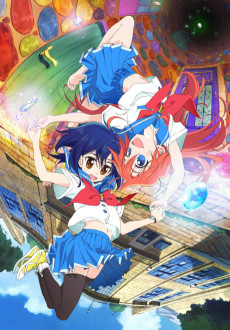 ANIME ActionFlip Flappers
ANIME ActionFlip Flappers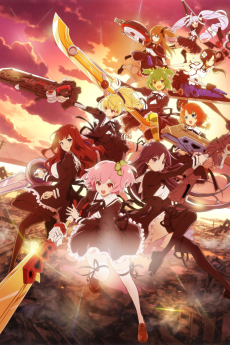 ANIME ActionAssault Lily: BOUQUET
ANIME ActionAssault Lily: BOUQUET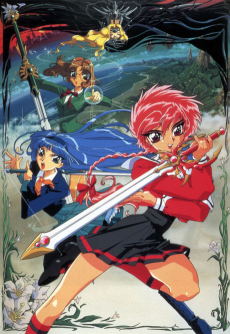 ANIME ActionMagic Knight Rayearth
ANIME ActionMagic Knight Rayearth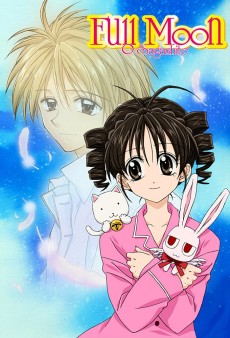 ANIME ComedyFull Moon wo Sagashite
ANIME ComedyFull Moon wo Sagashite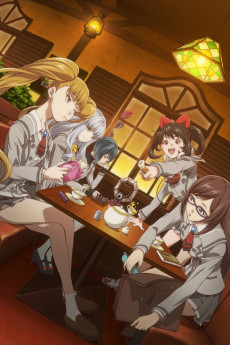 ANIME ActionAkane Sasu Shoujo
ANIME ActionAkane Sasu Shoujo
SCORE
- (2.65/5)
TRAILER
MORE INFO
Ended inSeptember 25, 2021
Main Studio J.C.STAFF
Favorited by 99 Users
Hashtag #ブルリフR


